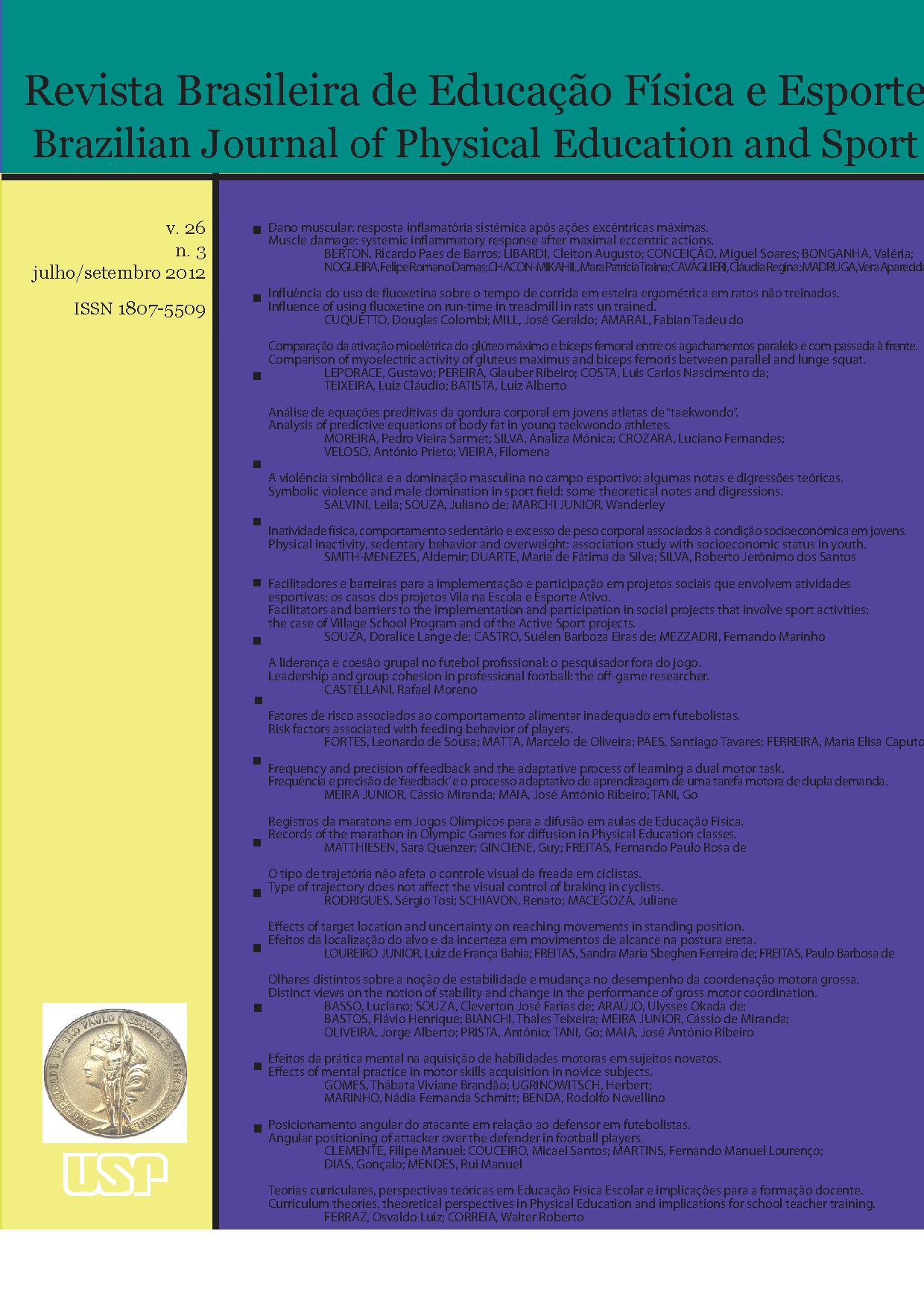Frequency and precision of feedback and the adaptive process of learning a dual motor task
DOI:
https://doi.org/10.1590/S1807-55092012000300011Keywords:
Knowledge of results, Feedback, Motor learning, Motor skill, Adaptation, Dual motor taskAbstract
This work investigated the effects of frequency and precision of feedback on the learning of a dual-motor task. One hundred and twenty adults were randomly assigned to six groups of different knowledge of results (KR), frequency (100%, 66% or 33%) and precision (specific or general) levels. In the stabilization phase, participants performed the dual task (combination of linear positioning and manual force control) with the provision of KR. Ten non-KR adaptation trials were performed for the same task, but with the introduction of an electromagnetic opposite traction force. The analysis showed a significant main effect for frequency of KR. The participants who received KR in 66% of the stabilization trials showed superior adaptation performance than those who received 100% or 33%. This finding reinforces that there is an optimal level of information, neither too high nor too low, for motor learning to be effective.Downloads
Download data is not yet available.
Downloads
Published
2012-09-01
Issue
Section
Pedagógica e Comportamental
License
Todo o conteúdo da revista, exceto onde está identificado, está licenciado sob uma Licença Creative Commons (CC-BY)
How to Cite
Meira Junior, C. M., Maia, J. A. R., & Tani, G. (2012). Frequency and precision of feedback and the adaptive process of learning a dual motor task. Brazilian Journal of Physical Education and Sport, 26(3), 455-462. https://doi.org/10.1590/S1807-55092012000300011


